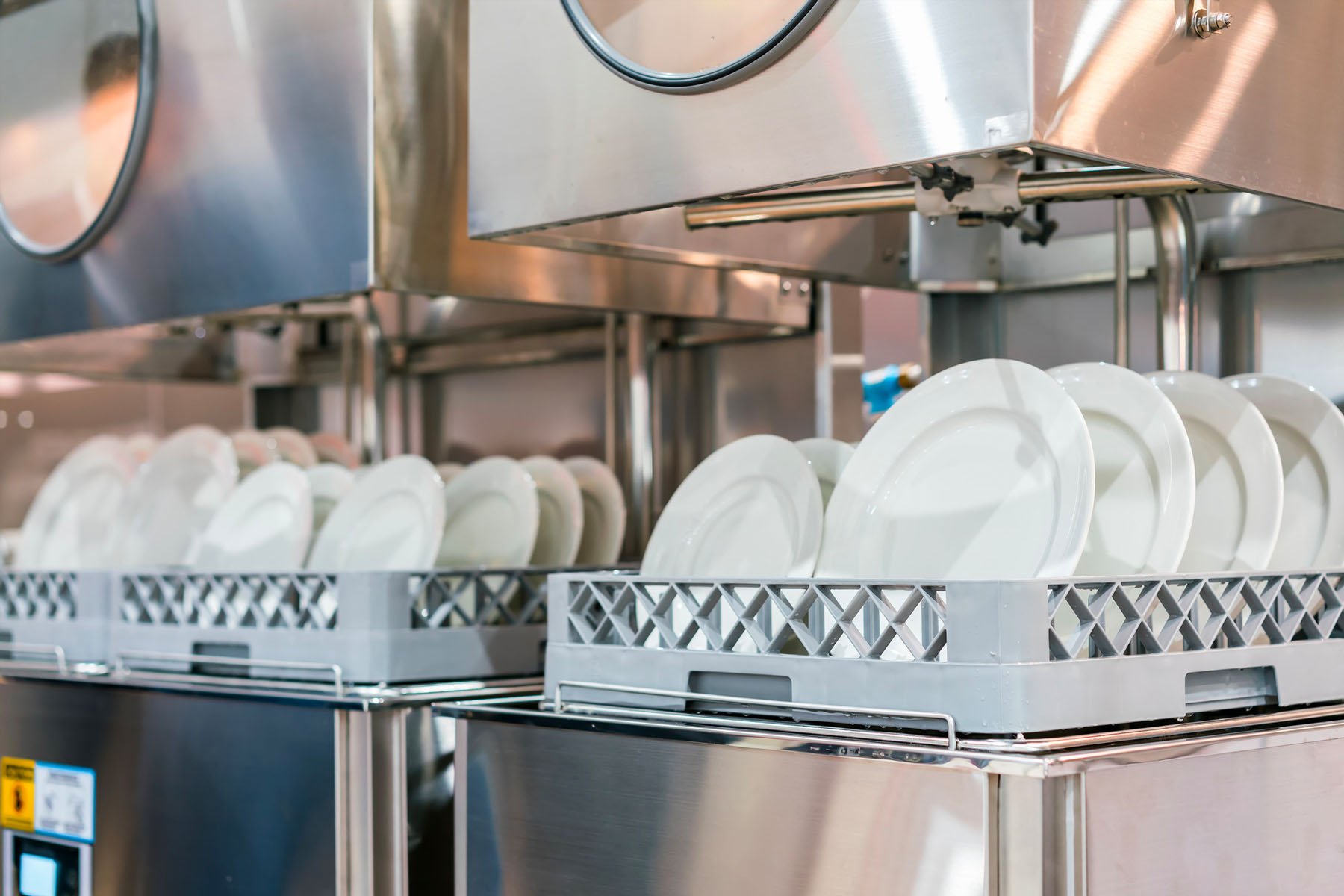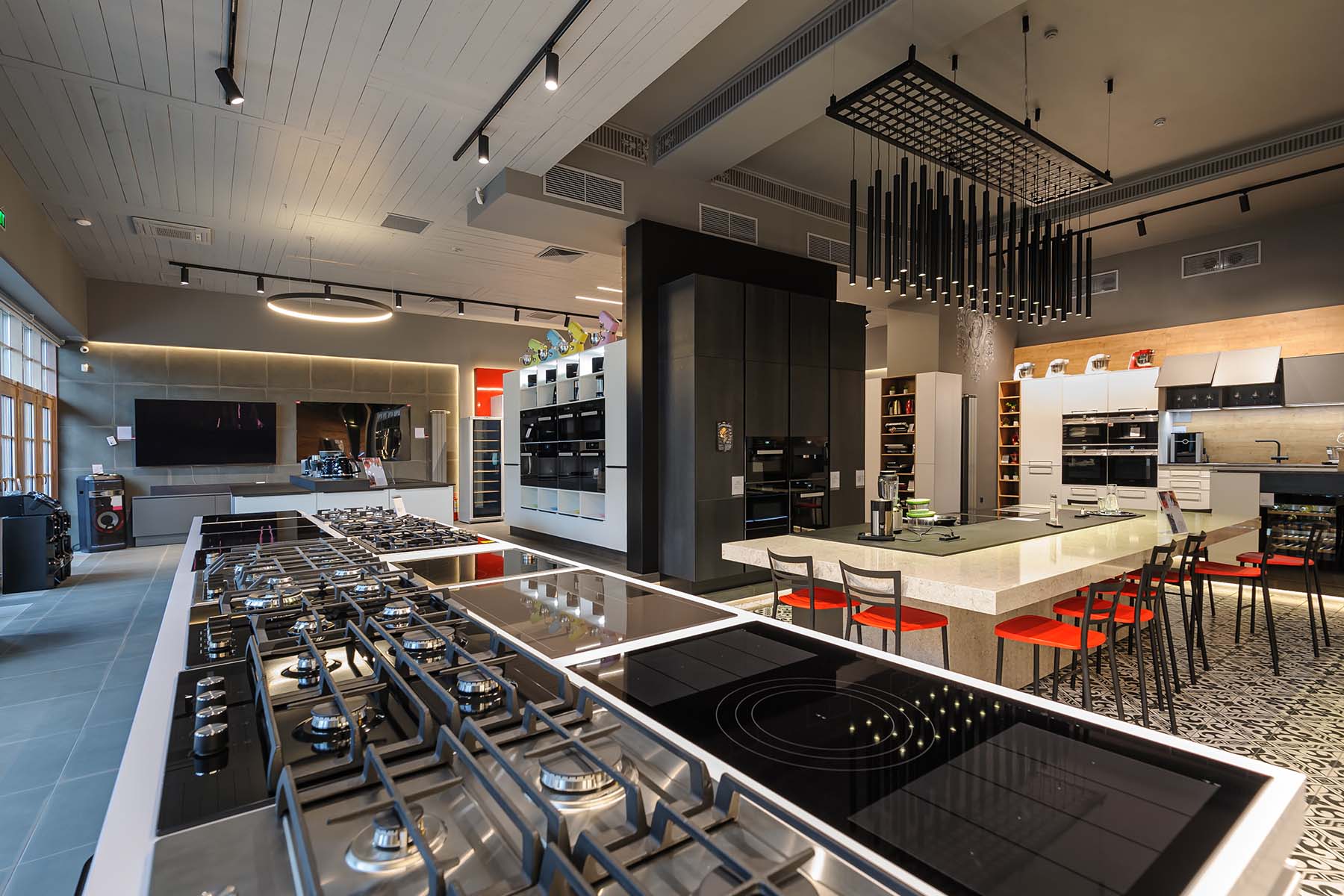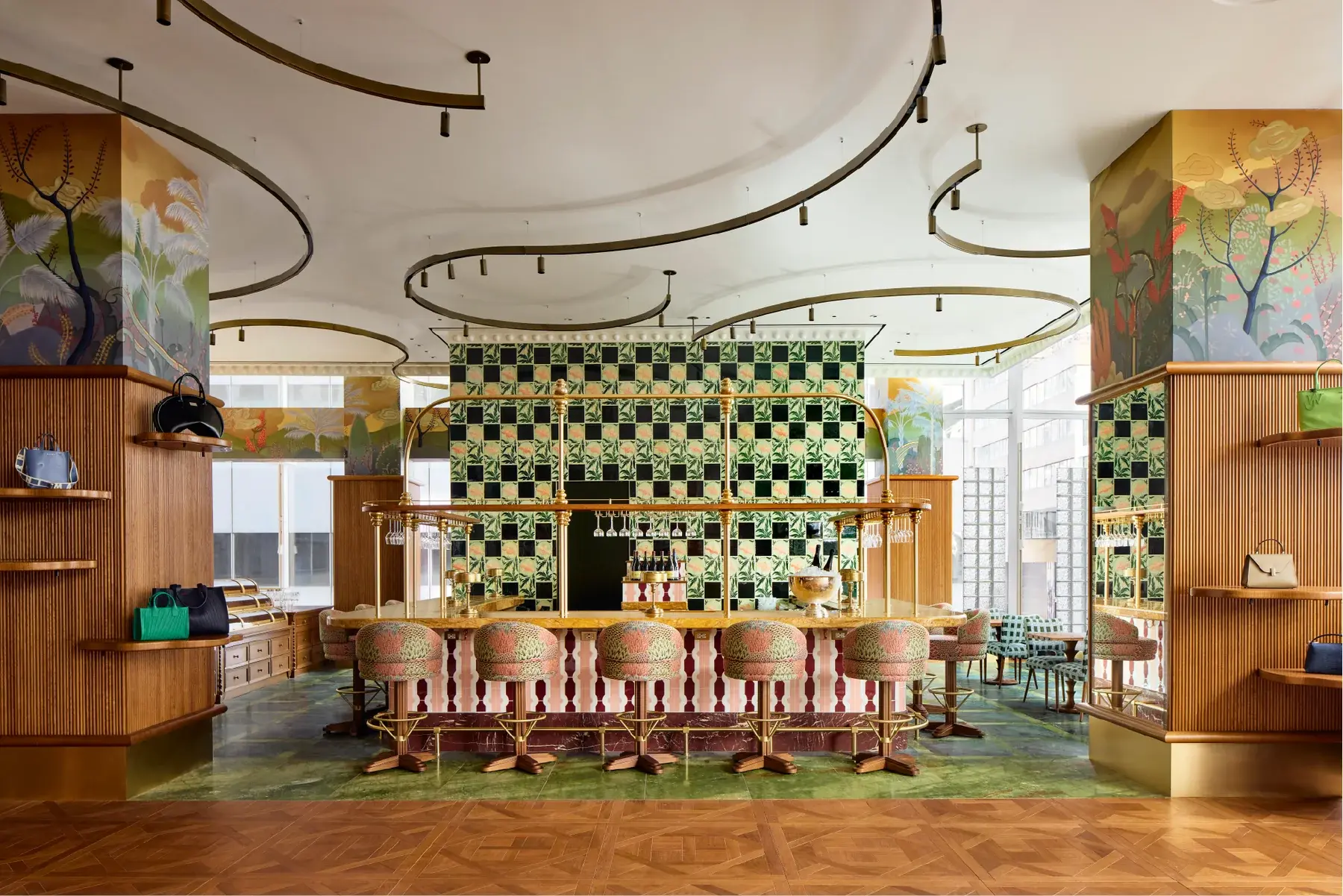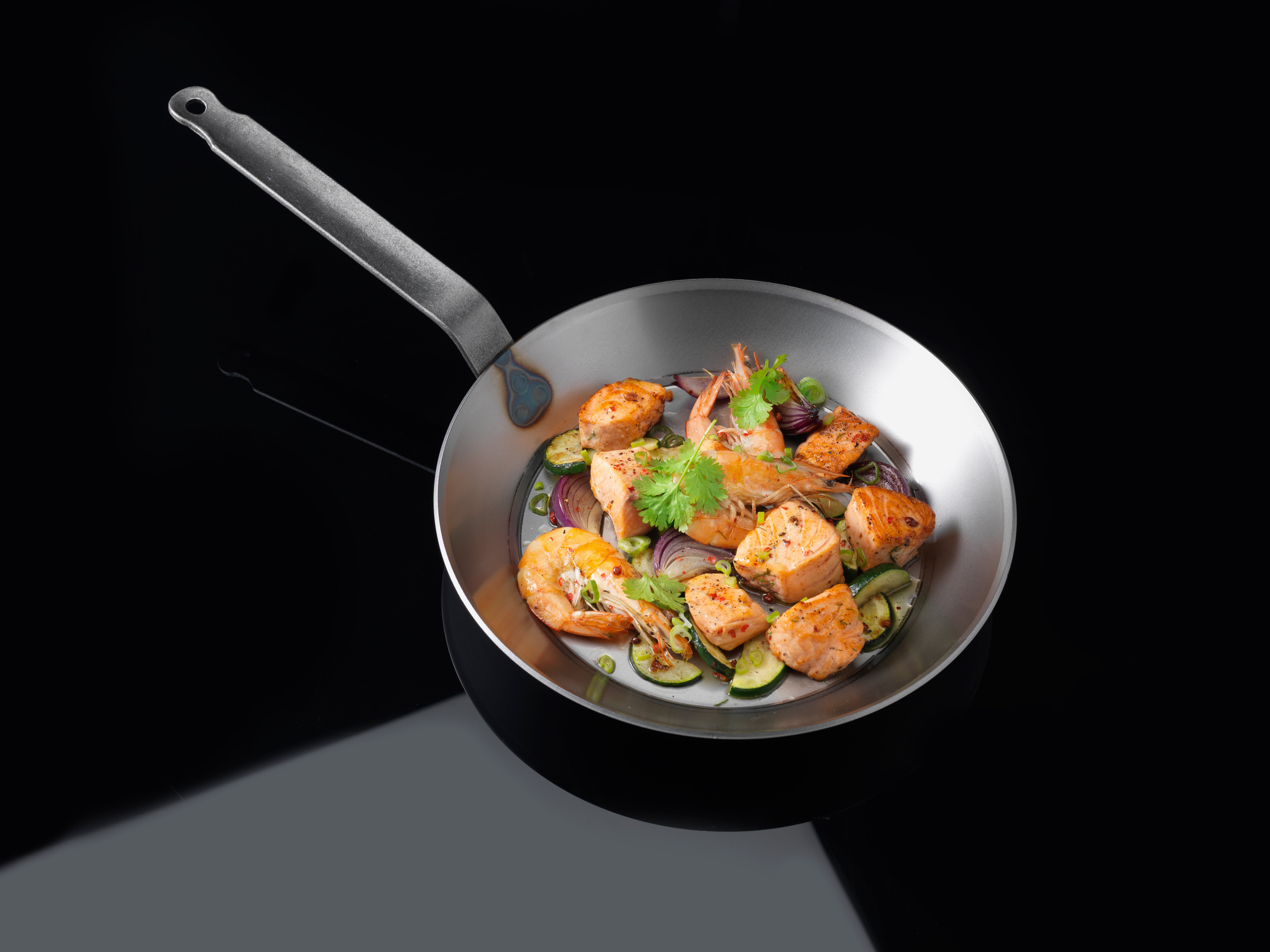Commercial dishwashing machines are a huge time saver in a restaurant kitchen, capable of cleaning a high volume of dirty dishes in a fraction of the time it would take to hand-wash. But purchasing a dishwasher for your restaurant is a lot different than going to the local appliance retailer for a model fit for the home kitchen.
Sam Tell’s Vice President of Specialty Chemicals Gary Estes cleans up the confusion between renting and owning a restaurant dishwashing machine, while explaining the crystal clear difference between high-temp and low-temp dishwashers.
When in the market for a new dishwashing system, what factors should restaurants consider?
The top factor is whether or not they should own or rent. That really is the key and most crucial factor that a customer has to decide. But there are actually three options. They can buy it outright, they can rent it from a company, or they could lease it to own. I would say maybe 40 percent of dishwashers are rented, so it is a very large rental market, though most restaurants do own their own dishwashing systems. But that really is the first decision any customer has to decide: Do you want to own, rent or lease to own?
What are the main advantages to owning your own system?
When you own your own dishwasher, you’re able to buy the dishwashing detergents anywhere you want. When you rent a dishwasher from a company, you have to buy the dishwashing detergent from them. For example, Ecolab is probably one of the biggest players in the market, and their chemicals are quite expensive. And when you rent a dishwasher from a company, you are stuck with them and only them to repair that dishwasher. When you own the dishwasher, you can do anything you want. You can buy the dishwashing detergent wherever you want, and anybody can service the machine. But when you rent the dishwasher, you have to rely on the company you rented it from. And if for whatever reason, that company can’t service the it in a moment’s notice, you’re stuck with no dishwasher. And that’s a bad spot for any restaurant to be in.
What are the differences in cost between renting and owning a dishwasher?
When you rent a dishwasher, there’s not only the monthly rental cost, which depends on the type of dishwasher you have, but they also might charge you each and every time you use the dishwasher. So, if you’re trying to eliminate costs, renting is not going to be something you want to do.
How do energy costs differ between renting and owning a dishwasher?
Once you make the decision of whether you’re going to buy or rent a dishwashing machine, the next decision you need to make is whether you’re going to go with a high-temperature or a low-temperature dishwasher. High-temp dishwashers sanitize with a 180-degrees and low-temp dishwashers sanitize with chlorine. So, when running dishwasher machines, high-temp models need more power than low-temp models. Low-temp dishwashers operate on 115 volts, while the high-temp models operate on 220 volts. So, high-temp draws much more power because they need those really hot temperatures to sanitize dishware, glassware, and silverware. Low-temp dishwashers need the dishwashing detergent to help sanitize all of those items.
What are some of the advantages and disadvantages of high-temp and low-temp dishwashers?
The main benefit with a high-temp system is that it’s only cleaning with hot water. You’re not adding detergents and as long as your water is hitting 180-degrees, you’re sanitizing everything. And when the glasses and plates and everything comes out, they come out hotter and drier. When you use a low-temp dishwasher, the items aren’t as hot and they take longer to dry. So the advantage of a high-temperature dishwasher is that you can use the glasses and plates and everything else faster than if you wash using a low-temp dishwashing machine. The main disadvantage of a low temperature dishwasher is that by adding chlorine, there can be a residue or smell of detergents on your wares. It takes a little bit of time for that to dissipate, so you have to wait longer before you can use the wares.
Do the two temperature dishwashers benefit different types of restaurants in different ways?
When you look at the market, smaller eateries are more apt to use a low-temperature dishwasher, and the larger locations and fine dining restaurants are more likely to use high-temperature dishwashers. And the main reason is chlorine. A lot of high-end places and really fancy restaurants that serve expensive wines don't want any chlorine smell to affect their wines. Now, technically the chlorine dissipates and that shouldn't be an issue, but there’s still a bit of a stigma in the high-end restaurant industry against anything that uses dishwashing detergents.
Why should restaurants give considerable thought to purchasing dishwashers?
"When the dishwasher goes down in a restaurant, it's havoc."
The dishwasher market is a little different than the markets for other pieces of equipment in kitchens. The dishwasher is generally one of the few pieces in the kitchen where there is no redundancy at all because there’s generally only one dishwasher in the kitchen—the main dishwasher. When the dishwasher goes down in a restaurant, it's havoc. That’s why the rental market is so strong, because people got so frustrated fixing the dishwashers, they said, “let me rent it and then any time it breaks this company has to fix it and if it doesn’t work, they’ll have to replace it.”
To learn more about high-temperature and low-temperature dishwashers and whether renting or owning is right for you, contact your Sam Tell sales rep today!








